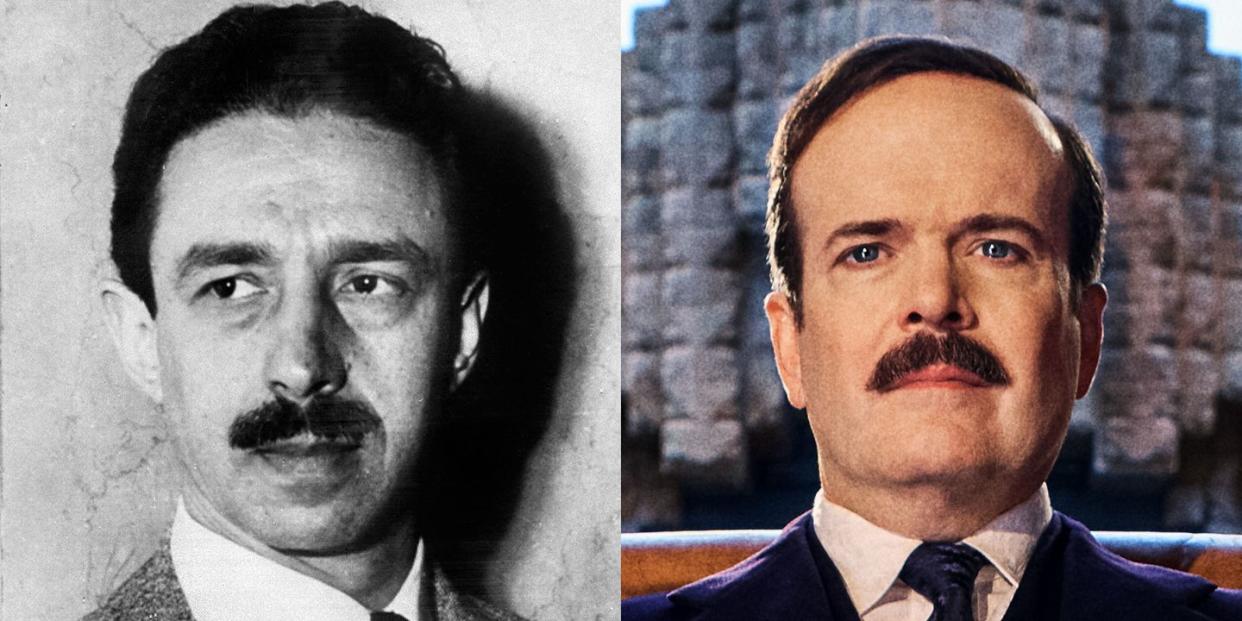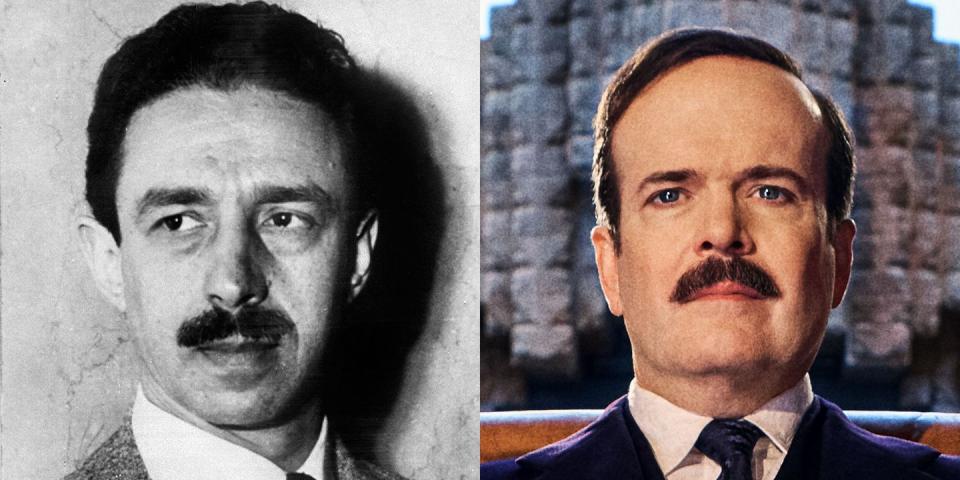The True Story of the Black Dahlia, the Hodels, and the Memoir that Inspired I Am the Night

I Am the Night, the new miniseries starring Chris Pine, is based on real events-and in some cases, the true story is just as awful as its fictionalized retelling. Below, everything you need to know about the Black Dahlia, the Hodels, and how the two true crime stories come together.
The Black Dahlia refers to a decades-old cold case.
Aspiring actress Elizabeth Short was found dead in 1947, and posthumously nicknamed the Black Dahlia. The crime quickly became a tabloid sensation, partly because of the gruesome way Short's body had been mutilated, and partly due to Short's personal story. She had moved to LA in pursuit of a career in Hollywood, and after her death, she became "a sad cliche-the ultimate warning tale... A starry-eyed young girl comes to Hollywood, and things go very bad for her," Glynn Martin, former Los Angeles police sergeant, explained to the BBC.
Despite the police's best efforts, the murder was never solved.
According to Time, the police worked with the press to disseminate information in the hopes of obtaining leads, but all law enforcement ended up getting were false confessions, all of which were eventually debunked. No charges were ever filed.

George Hodel was under suspicion for killing Short, but never indicted.
Many years after the Black Dahlia killing, George Hodel's son, former cop Steve Hodel, became suspicious of his own father's possible involvement in the crime. A photo album found in his dad's things, which contained a picture of a woman Steve believed to be Elizabeth Short, led him to dig deeper into the case.
He was able to surface significant evidence, including the fact that George Hodel had been one of the cops' prime suspects. There is even police surveillance tape of George possibly confessing to the crime.
“Supposin’ I did kill the Black Dahlia. They couldn’t prove it now. They can’t talk to my secretary any more because she’s dead.” - George Hodel said.
No one has been able to prove Steve Hodel wrong-but as his theories have continued to spiral, encompassing more and more unsolved murders, experts have become increasingly divided about his conclusions.

George Hodel came under suspicion after he was accused of molesting his daughter, Tamar Hodel.
It was 14-year-old Tamar who led the police to consider George Hodel as a suspect, after accusations surfaced that he had been molesting her. Per Curbed, Tamar ran away, and was subsequently questioned by the police. She told them she left because "her home life was too depressing," due to "all the sex parties at the Franklin House" (their home was on Franklin Avenue).
Three people subsequently testified in court that they had seen George have sex with his daughter. He was ultimately acquitted of the assault charges, but the cops continued to pursue his possible connection to the Black Dahlia case.
After the trial, Tamar gave birth at the age of 16. Her daughter appeared to be caucasian, but Tamar insisted that her baby's father was black. Wishing to distance the family from both George Hodel's trial and Tamar Hodel's alleged interracial romance, Tamar's mother arranged for a black woman to adopt the child.
That child was Fauna Hodel, and I Am the Night is based on the real-life Fauna Hodel's memoir.
Per Fauna Hodel's autobiography, One Day She'll Darken, Fauna didn't learn who her mother was until she was a teenager, at which point she set out to meet her blood relatives. It was then that she learned of the Hodel family and their past.
The I Am the Night creators, husband-and-wife team Patty Jenkins and Sam Sheridan, actually knew Fauna Hodel. Fauna died in 2017 after a battle with cancer, inspiring Jenkins and Sheridan to bring her story to the small screen. "I've never met anybody who told me a story like this," Jenkins told the Hollywood Reporter. "And it was told by such a beautiful and wonderful spirit; the combination of those two things ignited me, and I've wanted to tell this story for a long time."
"There were so many fascinating elements, but particularly she was a woman who had set out to find out who she was and found out the worst things were true," Sheridan explained to the Hollywood Reporter. "And yet, she had found peace, and that journey was fascinating to me."
('You Might Also Like',)

